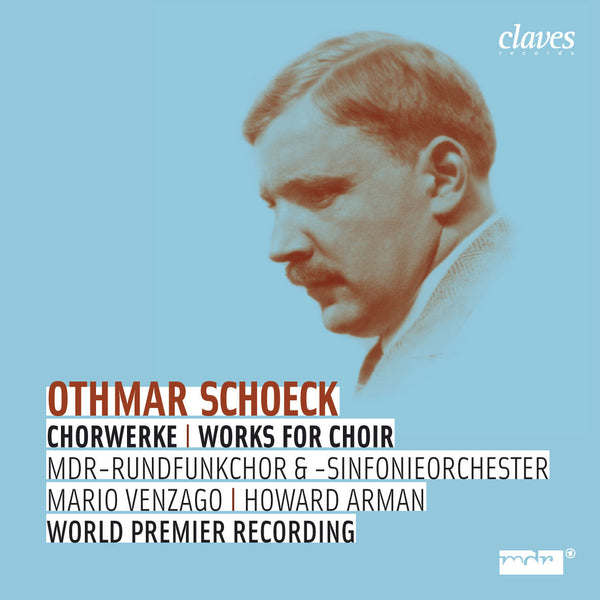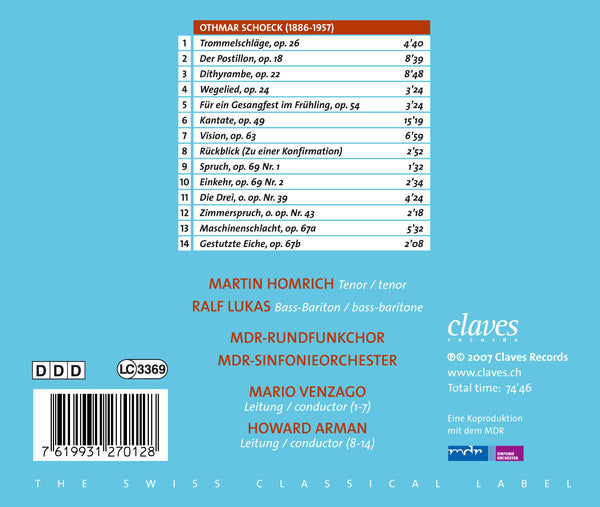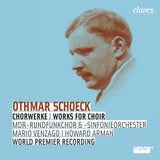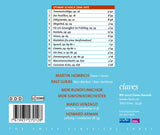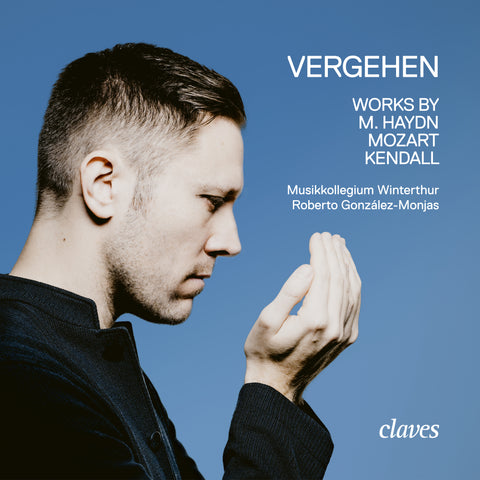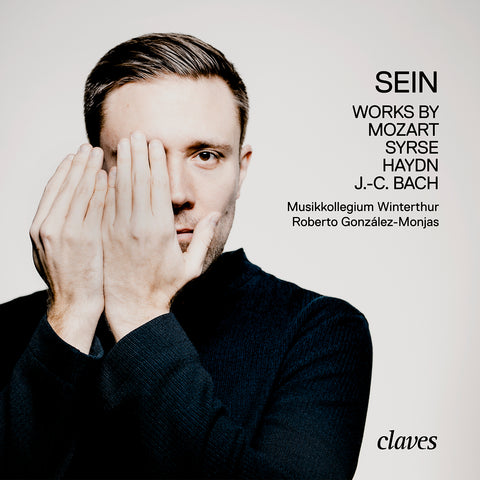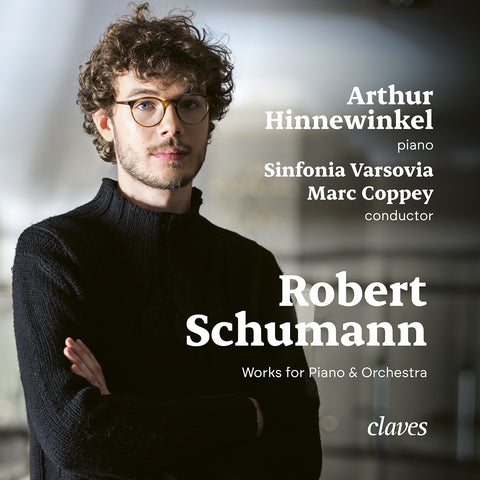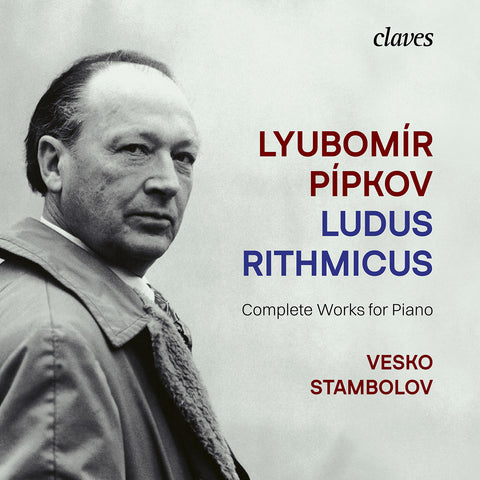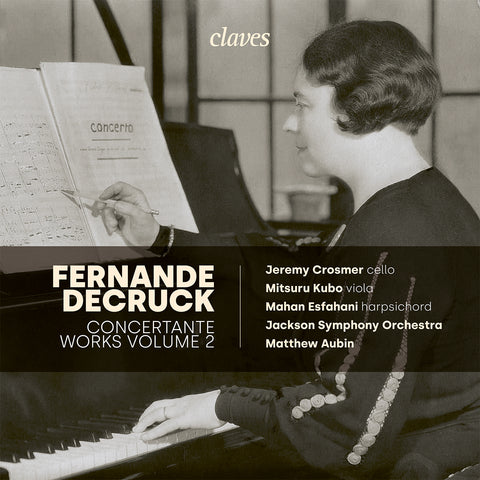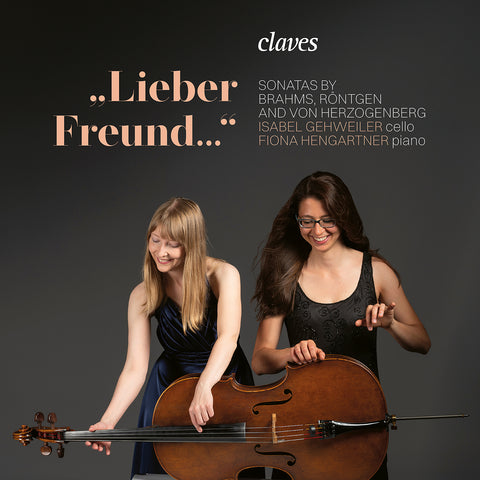(2007) Othmar Schoeck: Chorwerke
Kategorie(n): Operngesang
Gesangsstimme(n): Tenor
Hauptkomponist: Othmar Schoeck
CD-Set: 1
Katalog Nr.:
CD 2701
Freigabe: 2007
EAN/UPC: 7619931270128
- UPC: 829410378871
Dieses Album ist jetzt neu aufgelegt worden. Bestellen Sie es jetzt zum Sonderpreis vor.
CHF 18.50
Dieses Album ist nicht mehr auf CD erhältlich.
Dieses Album ist noch nicht veröffentlicht worden. Bestellen Sie es jetzt vor.
CHF 18.50
Dieses Album ist nicht mehr auf CD erhältlich.
CHF 18.50
Inklusive MwSt. für die Schweiz und die EU
Kostenloser Versand
Dieses Album ist nicht mehr auf CD erhältlich.
Inklusive MwSt. für die Schweiz und die EU
Kostenloser Versand
Dieses Album ist jetzt neu aufgelegt worden. Bestellen Sie es jetzt zum Sonderpreis vor.
CHF 18.50
Dieses Album ist nicht mehr auf CD erhältlich.
This album has not been released yet.
Pre-order it at a special price now.
CHF 18.50
Dieses Album ist nicht mehr auf CD erhältlich.
CHF 18.50
Dieses Album ist nicht mehr auf CD erhältlich.
SPOTIFY
(Verbinden Sie sich mit Ihrem Konto und aktualisieren die Seite, um das komplette Album zu hören)
OTHMAR SCHOECK: CHORWERKE
*** Clé du Mois ResMusica ***
Othmar Schoeck composed a large part of his choral music between the years 1909 and 1915; a time during which he earned his living principally as a choral conductor. Schoeck never particularly liked this occupation; his manner often was considered unconventional and at times even disdainful by his decidedly traditional and conservative choirs. In spite of this he was very successful as conductor; approaching his work with great energy and leading his choirs to perform demanding programs at a high level. And at times he took his choirs to the limits of their abilities; particularly with his own compositions; occasionally in retaliation for the artistic ignorance and insularity of the Swiss choral system.
At home like with Schubert
After having composed some half-dozen principally a cappella choral works Schoeck wrote his first major choral composition in September 1909: Der Postillon [the postilion] to a poem by Nikolaus Lenau. The work is still completely in the tradition of late-romantic choral music; the strings gently paint the mood of a May night; the horns sound the song; at times boldly; at times melancholically; of the departed postilion. Schoeck’s friend Hermann Hesse; who heard the premiere of the work in Zurich in 1911; wrote enthusiastically about it in his memoirs: “I felt at home with this music; like with Schubert.”
Schoeck struck a completely different tone in his short but monumental Dithyrambe. He set Goethe’s three lines (from a letter to Auguste zu Stolberg in July 1777) to music for double choir and large orchestra with organ in 1911; the lugubrious; romantic swan song of the postilion was followed a year later by a roaring burst of personal expression driven by an enormous elemental force. The ten minutes of music are most demanding on the choir. One only has to listen to the drawn-out final chord; the exhausted singers must sing a crescendo beginning fff and at times without orchestral accompaniment. But it was exactly with this excess and intransigence that Schoeck captured the spirit of Goethe’s three lines.
A deeply felt love for freedom
Composed in 1949; Vision is a wonderful gem for male choir; instruments and string orchestra that Schoeck wrote for the Schwyz Singing Society and the Lachen Male Choir (Lachen; Lake Zurich). Once again written to a poem by Gottfried Keller; this time; however; without the patriotic pathos but with an honest; deeply felt love for freedom. Schoeck transcended late-romantic choral music and transformed it into the personal language of his late style. A reserved sense of serenity pervades this last; major piece of choral music.
Maschinenschlacht [battle of the machines]; a work for a cappella male choir written for the Zurich Harmonie Singing Society in 1953; is very different. The aging Schoeck stood up once again without compromise against a contemporary society that he considered to be without soul. And as was the case years earlier with Trommelschläge [Beat! Beat! Drums!] the singers revolted. But in this case because of the text by Hermann Hesse; who polemicized against dumb; treacherous machines and money-hungry industrialists. In the end the poem was altered in two places with Hesse’s consent: The angry crowd no longer mill the “industrialist” but merely the “quadrant” to death; and the creators of the machines no longer “croak” but merely “expire” nicely. The anachronistic and relentless polemic against contemporary society was published together with another setting of a Hesse poem; Gestutzte Eiche [truncated oak]; a work commissioned by the male choir in Thun and completed in 1953.
Beat A. Föllmi
(Translation: Mark Manion)
*** Clé du Mois ResMusica ***
Othmar Schoeck composed a large part of his choral music between the years 1909 and 1915; a time during which he earned his living principally as a choral conductor. Schoeck never particularly liked this occupation; his manner often was considered unconventional and at times even disdainful by his decidedly traditional and conservative choirs. In spite of this he was very successful as conductor; approaching his work with great energy and leading his choirs to perform demanding programs at a high level. And at times he took his choirs to the limits of their abilities; particularly with his own compositions; occasionally in retaliation for the artistic ignorance and insularity of the Swiss choral system.
At home like with Schubert
After having composed some half-dozen principally a cappella choral works Schoeck wrote his first major choral composition in September 1909: Der Postillon [the postilion] to a poem by Nikolaus Lenau. The work is still completely in the tradition of late-romantic choral music; the strings gently paint the mood of a May night; the horns sound the song; at times boldly; at times melancholically; of the departed postilion. Schoeck’s friend Hermann Hesse; who heard the premiere of the work in Zurich in 1911; wrote enthusiastically about it in his memoirs: “I felt at home with this music; like with Schubert.”
Schoeck struck a completely different tone in his short but monumental Dithyrambe. He set Goethe’s three lines (from a letter to Auguste zu Stolberg in July 1777) to music for double choir and large orchestra with organ in 1911; the lugubrious; romantic swan song of the postilion was followed a year later by a roaring burst of personal expression driven by an enormous elemental force. The ten minutes of music are most demanding on the choir. One only has to listen to the drawn-out final chord; the exhausted singers must sing a crescendo beginning fff and at times without orchestral accompaniment. But it was exactly with this excess and intransigence that Schoeck captured the spirit of Goethe’s three lines.
A deeply felt love for freedom
Composed in 1949; Vision is a wonderful gem for male choir; instruments and string orchestra that Schoeck wrote for the Schwyz Singing Society and the Lachen Male Choir (Lachen; Lake Zurich). Once again written to a poem by Gottfried Keller; this time; however; without the patriotic pathos but with an honest; deeply felt love for freedom. Schoeck transcended late-romantic choral music and transformed it into the personal language of his late style. A reserved sense of serenity pervades this last; major piece of choral music.
Maschinenschlacht [battle of the machines]; a work for a cappella male choir written for the Zurich Harmonie Singing Society in 1953; is very different. The aging Schoeck stood up once again without compromise against a contemporary society that he considered to be without soul. And as was the case years earlier with Trommelschläge [Beat! Beat! Drums!] the singers revolted. But in this case because of the text by Hermann Hesse; who polemicized against dumb; treacherous machines and money-hungry industrialists. In the end the poem was altered in two places with Hesse’s consent: The angry crowd no longer mill the “industrialist” but merely the “quadrant” to death; and the creators of the machines no longer “croak” but merely “expire” nicely. The anachronistic and relentless polemic against contemporary society was published together with another setting of a Hesse poem; Gestutzte Eiche [truncated oak]; a work commissioned by the male choir in Thun and completed in 1953.
Beat A. Föllmi
(Translation: Mark Manion)
Return to the album | Read the booklet | Composer(s): Othmar Schoeck | Main Artist: Martin Homrich







